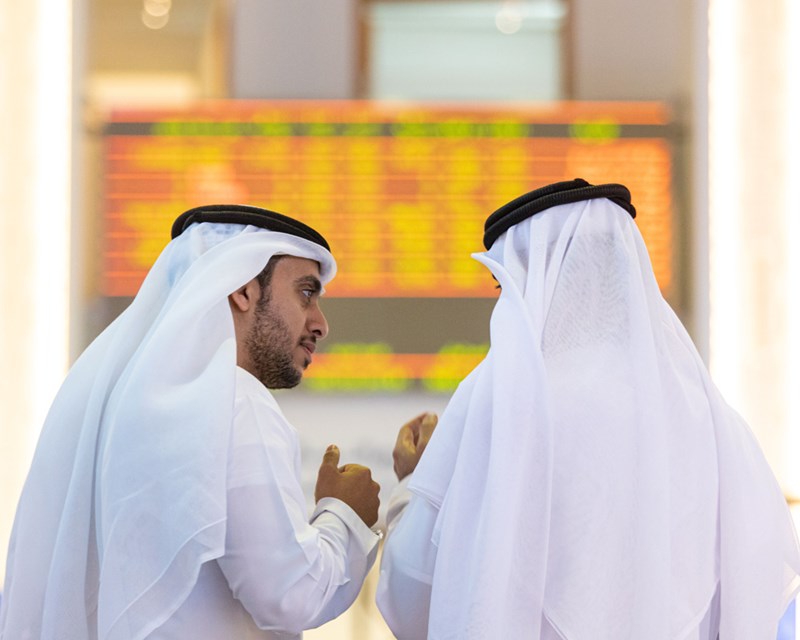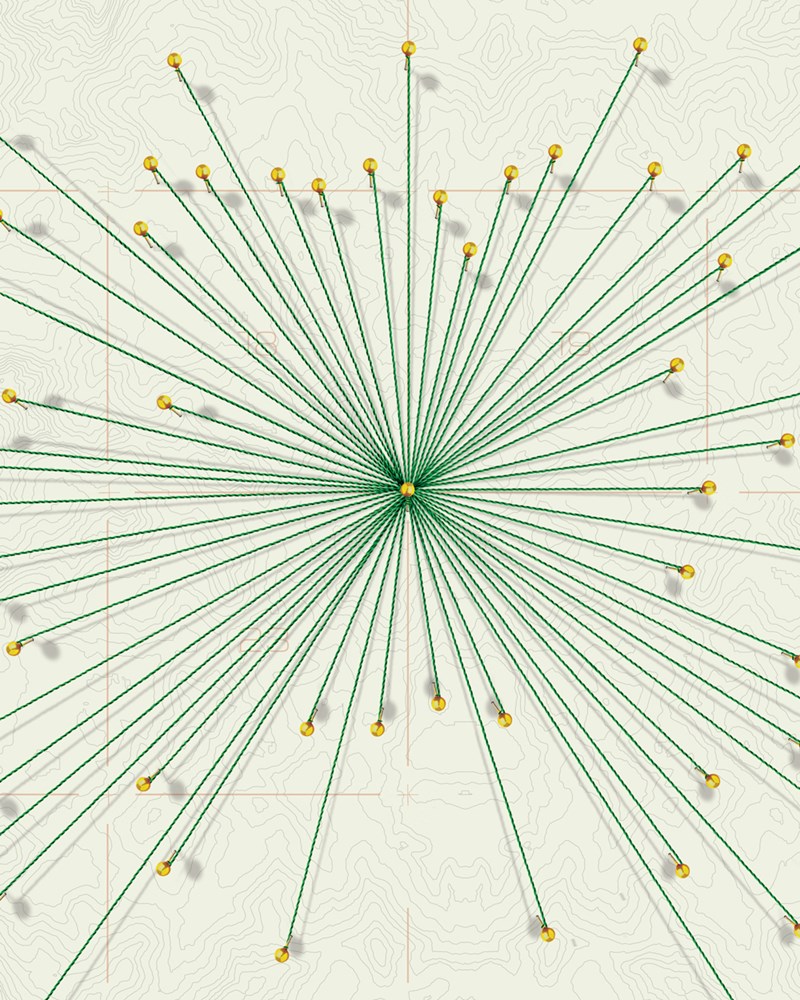SCROLL DOWN
FROM ACCESS TO EDUCATION, TO SHRINKING POVERTY, MEET THE FEMALE LEADERS TAKING THE MIDDLE EAST’S NONPROFIT SECTOR TO NEW HEIGHTS.
In boardrooms across the world, gender equality remains more of a slogan than a reality. Decades after women began pouring into the workplace, only a fraction have made it to the top of the corporate ladder. But in the nonprofit sector at least, the gap is gradually narrowing. With female leadership at more than 40 per cent, it is one of only three industries globally where women have neared parity in the upper ranks, blazing a trail for others to follow. The pace at which the sector hires female talent has been rising slowly since 2007, a trend that has helped swell women’s share of the nonprofit workforce to 57 per cent.
But while women are increasingly making their mark on the industry, some barriers persist. One study found that the bigger a nonprofit’s budget, the less likely it is that a woman will occupy the corner office. Among top-funded groups – those with budgets of $10m or more – less than a third have a female CEO. Women that do scale the upper rungs of the career ladder can also expect to be paid less than their male counterparts.
“The sort of challenges we see on a global level are also reflected here in the Arab region,” admits Maysa Jalbout, CEO of the UAE-based Abdulla Al Ghurair Foundation for Education. “It’s not perfect. But it’s also true that with the advent of more women in senior positions, they in turn are hiring, mentoring and promoting more women. It all has a knock-on effect.”
In the Middle East, the gains are visible. On the following pages, we list some of the region’s most dynamic nonprofits: from its first venture philanthropy organisation, to its largest private education fund. All are run by women.
Under their lead, these groups are igniting inclusive change, including powering social enterprise and driving job creation in needy communities. They are taking risks and innovating. They are tackling some of the region’s most intractable social ills. In a sector once synonymous with charity, they are leading a shift towards a more strategic, results-led model of philanthropy. Despite the obstacles, that is something to be celebrated.






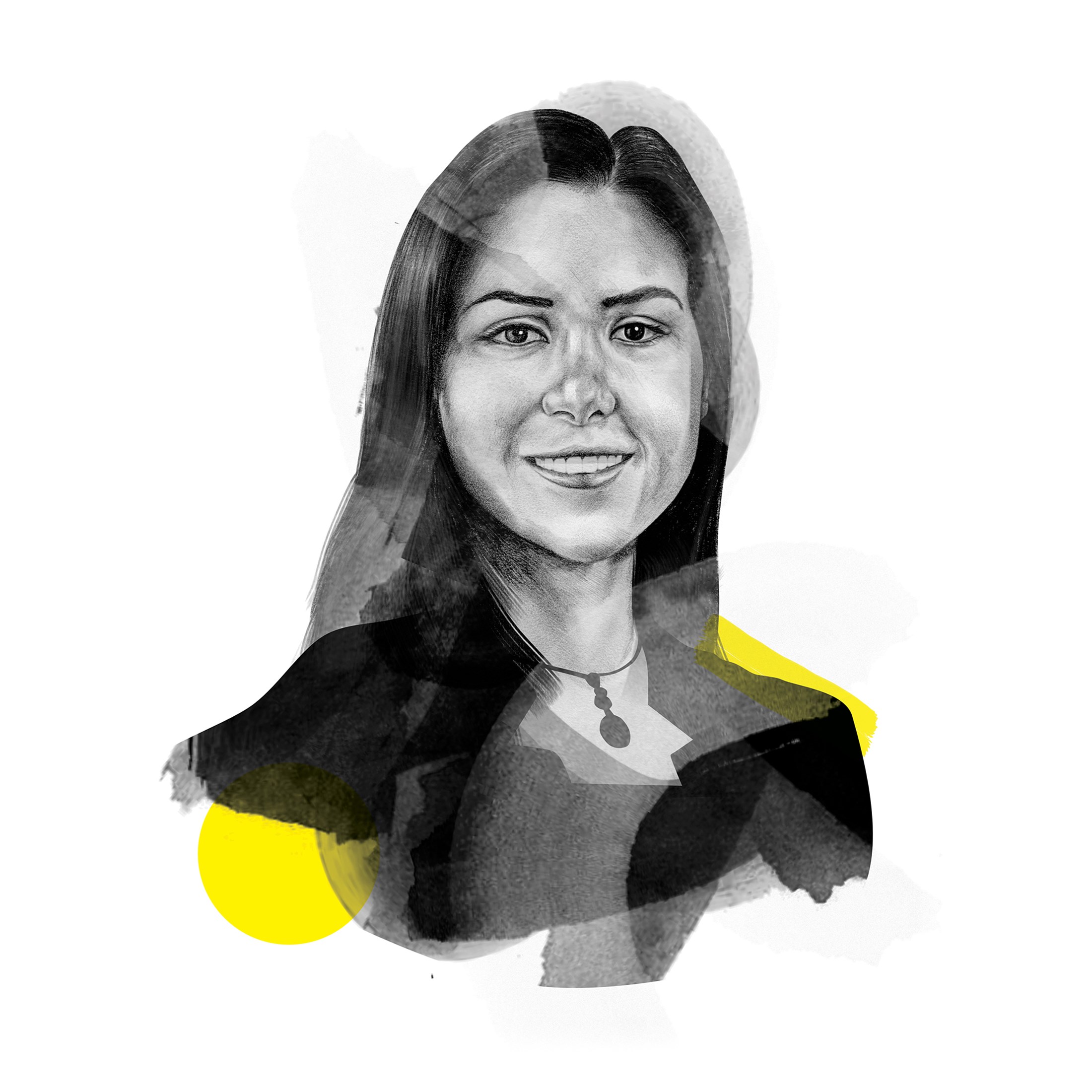
UNITED FOR CHANGE
Noura Selim is executive director of the Sawiris Foundation for Social Development, which works to empower Egypt's poorest communities, and support inclusive development.
When Noura Selim left the private sector three years ago to head up one of Egypt’s longeststanding family donor foundations, not everyone saw it as an upward move. “Some people felt it was a huge step down in terms of my career to join a foundation,” she laughs, “whereas I saw it as a rare opportunity to lead an organisation. Young women don’t often get these chances in Egypt.”
As executive director of the Sawiris Foundation for Social Development (SFSD), Selim oversees an organisation that invests in bold, sustainable change. Across Egypt, a country where around half the population lives on or near the breadline, SFSD works to stamp out poverty, to drive job creation, to raise the quality of education, and to give marginalised Egyptians the means to thrive.
It ploughs upwards of EGP150m (about $8.4m) annually into social development programmes, with more than two-thirds of funding channeled towards Egypt’s poorest communities.
“We work with those at the base of the pyramid: the poorest of the poor,” explains Selim. “The core of our work is in economic empowerment, and the indirect benefits that come from that – we believe in sustainable development, and that’s what we aim for.”
As a grantmaking foundation, that translates into funding for organisations and initiatives tackling systemic inequalities.
SFSD’s portfolio includes a microcredit arm, which works through partner NGOs to help vulnerable groups to start or expand small businesses; healthcare projects to aid underprivileged citizens; training programmes to steer young Egyptians into employment; and community investments ranging from opening schools, to providing long-term housing and care for street children.
Because SFSD’s model relies on implementing partners, money often goes hand-in-glove with support to sharpen the skills and impact of local nonprofits. Grantees are coached in planning, finances, and data tracking and evaluation, among other practices, in an effort to help galvanise the growth of a smart, stable nonprofit sector, from the ground up.
“One of our primary goals since the beginning has been not only to be a professional organisation, but to play a role in the professionalisation of Egypt’s philanthropic sector,” says Selim.
She estimates there are more than 40,000 NGOs working on the ground in Egypt: a fleet that runs the spectrum from grassroots groups to slick, impact-driven organisations. “As a donor, we’re very involved, and that means we tailor our support to the [grantee].”
At times, that means breaking new ground. SFSD has experimented with out-of-the-box development models, backing and scaling initiatives that show promise.
In Upper Egypt, an area synonymous with the struggles of the rural poor, the foundation was an early-stage partner in a 2012 project to pilot and roll out interventions to spur agricultural productivity, through the use of new, more effective farming methods.
The Sustainable Agricultural Development initiative, which is run by the multi-partner Egypt Network for Integrated Development, also aimed to thin the ranks of low-paid farm workers by creating off-farm job opportunities. These included integrated fish farms, recycling of agricultural waste, and milk processing networks; to give workers the opportunity to pull in a new income stream, as well as train in sustainable agricultural practices.
"THE CORE OF OUR WORK IS IN ECONOMIC EMPOWERMENT AND THE INDIRECT BENEFITS THAT COME FROM THAT."
In its first five years, the project trained more than 2,500 people in new farming methods – workers who can then drive the wider uptake of these techniques in their villages – and created hundreds of jobs.
In a further stamp of success, it has seen the government and other NGOs adopt some of its models for broader use.
“This sort of collaboration is critical,” says Selim. “We see so many development players trying to target the same priority topics - youth unemployment, healthcare, poverty. It’s much more impactful when you coordinate, because you each bring your competitive strengths. Partnerships with government can be great: for us, those were the projects that went most to scale.”
Here’s an example: SFSD joined with the Ministry of Health and other actors in an effort to curb hepatitis C infections among garbage collectors in poverty-stricken Cairo settlements. Egypt has the highest prevalence globally of the blood-borne disease – which can lead to liver failure and cancer – with poor rural areas the worst affected.
Garbage collectors are especially at risk of infection; a result of both their work conditions and poor understanding of how hepatitis C is transmitted.
The project powered a mass awareness campaign, which included going door-to-door in Cairo's Manshiet Nasser area to educate families on prevention, and screening nearly 10,000 people for the disease.
Thousands more people were reached by seminars aimed at shrinking infection rates through improved knowledge, and driving long-term changes in behaviour. It’s an example of the sort of sustainable philanthropy the foundation aims to deliver, says Selim.
For much of its work, the foundation has to take a long view. Intractable social woes such as Egypt’s vast youth unemployment problem won’t be solved overnight.
Part of SFSD’s approach has been to map out the needs of the labour market, and then shape its own education programmes to match. As a result it owns two technical institutes in nursing and hospitality – both underserved sectors – whose aim is to equip students with in-demand skills and help propel them into the workplace.
So far, it is working: of the first two graduating classes from the nursing school, all have secured a job.
“Our goal was really to shed light on models of technical education that could lead to good employment, and to a good wage,” says Selim. “There is a stigma around technical education in Egypt, which means many young people choose instead to go to university. But the result is that we have a huge number of graduates who don't necessarily have the skills that employers want.”
SFSD was set up in 2001 with an endowment from the Sawiris family. This endowment, combined with donations, continues to fund its work today. Overhead expenses are capped at a lean 10 per cent of investments, a rule that forms part of SFSD’s promise to lead from the front on fiscal transparency.
“I see no reason why foundations in the Arab world can’t operate like, say, the Bill & Melinda Gates Foundation,” says Selim. “Funds aside, I mean that in terms of best practices in governance, in transparency and impact. The lack of [public] metrics is one of the most annoying elements of the sector: there is no legal requirement for foundations to report on their spending.”
Fixing this opacity could go some way towards buffing up the nonprofit sector’s reputation in Egypt, a change that could pay dividends, particularly for foundations seeking financial support.
“I see a lot more private philanthropy coming through in Egypt now. If [philanthropists] felt there were organisations they could trust, which worked efficiently, they might choose to channel their funds through them,” she suggests.
“I think we'd also see more interest from young talent: they'd see the sector has organisations that work professionally, and can offer career development opportunities.”
SFSD itself puts heavy emphasis on impact. In 2015 it teamed up with the Abdul Latif Jameel Poverty Action Lab (J-PAL), a global research network, to guage the long-term impact of its core work. The results of two randomised controlled trials – the gold standard in research – are due to be published in early 2019.
“We hope this will really show the impact of the different tools we use,” explains Selim. “For example, our theory is that economic empowerment leads to improved women’s empowerment in terms of their financial, social or political rights. But does it? That's what we want to find out.”
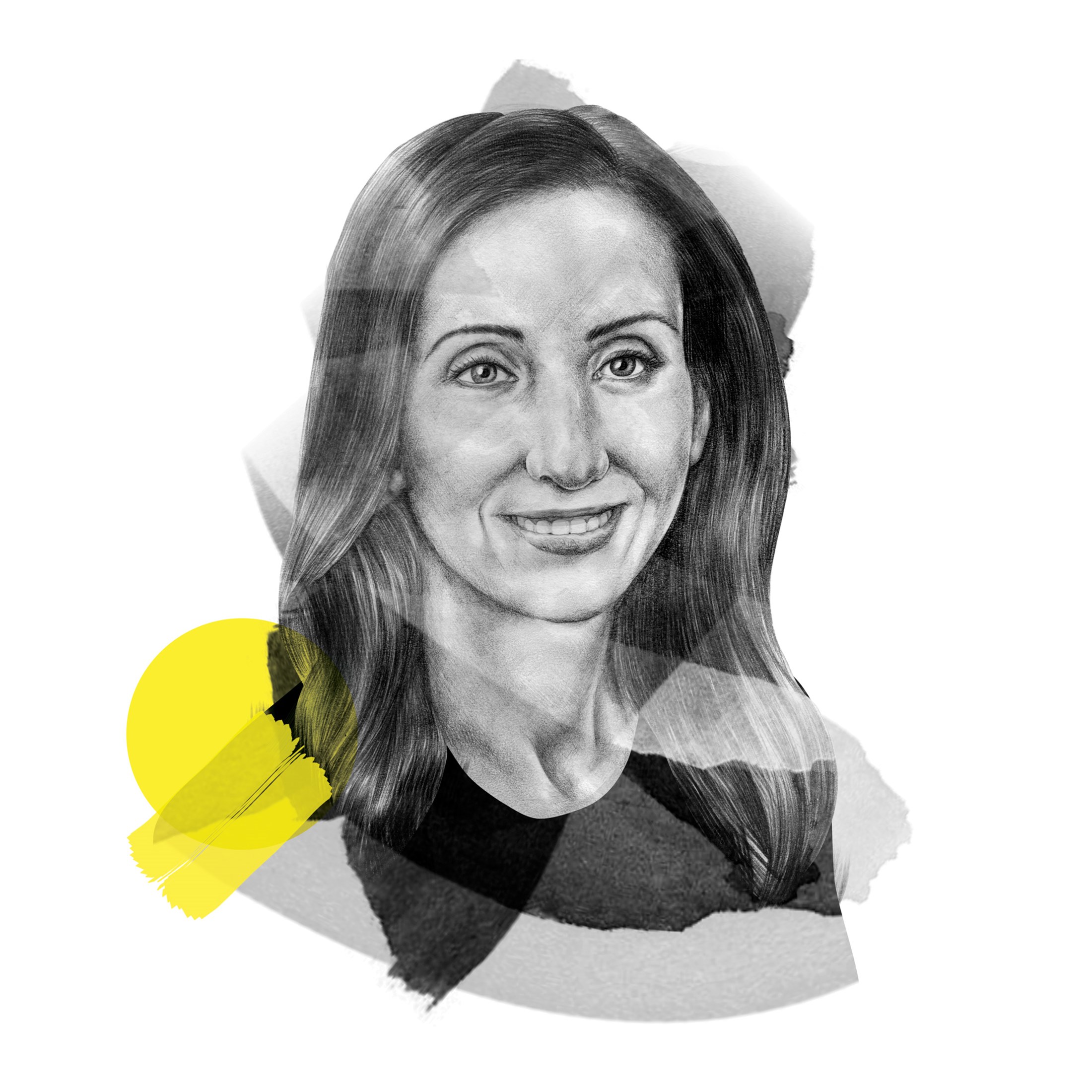
SHAPING FUTURE LEADERS
Maysa Jalbout is CEO of the Abdulla Al Ghurair Foundation for Education (AGFE), which uses scholarships, skills training and other support to help bright, underserved Arab youth to thrive.
There is no silver bullet for economic and social inequity. But as interventions go, widening access to education ranks among the most effective. “Education is the only thing you can give a person that no one else can take away from them,” says Maysa Jalbout, CEO of the UAE-based Abdulla Al Ghurair Foundation for Education (AGFE). “It’s the key to a better job, a better livelihood and better sustainable development. There is nothing else that delivers that kind of economic return.”
Investing in education is not new, but AGFE stands out both for its size – at $1.1bn, it is among the world’s largest education foundations – and its audacity. The details of its plan involve propelling 15,000 bright, underserved young Arabs into leading universities by 2025, and reaching thousands more via innovative online learning programmes.
Its approach goes beyond financial aid: scholars also reap the benefits of hands-on learning, soft skills training and mentorship. In a region with one of the highest youth unemployment rates globally, these are gains that matter. The foundation’s overarching goal is to change the course of these students’ lives –and by extension, to write a new script for the Middle East.
“Quality higher education is still very much for the privileged,” says Jalbout, adding that 35 per cent of AGFE’s scholars are the first in their family to enroll in university. “So many talented, incredible young people, with such ambition, come from the most disadvantaged families.”
In the two years since its launch, AGFE has supported 800 students from 18 Arab states, and struck up 16 partnerships with universities in 10 countries. High demand – more than 72,000 students have registered with the foundation’s online portal – saw AGFE promise to double the number of scholarships it offers this year to 1,500.
The foundation has also targeted the gap in provision for displaced teens and young adults, a group that attracts the scraps of global education spending. In June, AGFE’s chairman, Abdul Aziz Al Ghurair, pledged $27.2m over three years to drum up secondary, vocational and higher education opportunities for 15,000 out-ofschool Palestinian and Syrian refugees, and help them find a route to employment.
The fund, which will be administered by AGFE, announced an initial grantmaking round of $12.3m in September, with the UN’s children’s agency UNICEF, Emirates Red Crescent and the United Lebanon Youth Project among the organisations to benefit.
“We’ve realised we can’t have small gains: we’ve got to be more ambitious than that,” explains Jalbout. “The region has generations of young people who will be on the margins if we don’t support them. We don’t want to turn away these kids.”
This is not something AGFE can do alone, however. For this reason, it has a sharp focus on leverage, whether that’s in finding partners, building capacity in the education sector, or using technology to expand its reach.
"WE ALL WANT TO SEE MORE PHILANTHROPY BEING GIVEN, BUT EQUALLY IMPORTANT IS HOW IT IS GIVEN, AND TO WHAT."
More broadly, AGFE hopes to model the sort of strategic, impact-led giving that, if adopted widely in the Middle East, could help trigger a region-wide switch from charity to sustainable philanthropy. This style of giving uses philanthropy as a test lab: one able to explore, fund and trial innovations in areas that governments and business shy away from, before developing them at scale.
The idea, says Jalbout, is to do good better, and to make genuine inroads into the region's biggest issues.
“There is a key opportunity here to change the way philanthropy works, so it can produce the kind of results that we’re seeing around the globe,” she explains. “Private philanthropy is where we can invest more in innovation, we can have a higher tolerance for risk, we can address the gaps and we can bring different players to the table to work for the wider good.”
Arab giving is on the cusp of this change, she notes.
“It’s gone from something that is entirely personal, private and religiously motivated, to something that is a key player in solving socioeconomic challenges.”
For the wider nonprofit industry, this push towards results-led giving may act as an impetus to become more professional. Higher standards will also be required if the sector is to fight off the corporate sector to recruit and retain talented millennials.
“We’re working right at the interface between the most difficult problems that the region is facing, but the ecosystem isn’t optimised. We need to invest in the skills and professionalisation of the industry,” says Jalbout. “We all want to see more philanthropy being given, but equally important will be how it is given and to what.”
Jalbout says Arab women have long been at the coalface of community social change, a culture that has spilled over to create a female-dominated nonprofit workforce. The more pressing challenge now, she argues, is to open up workplaces across all industries to allow women to lead and succeed.
“We need women at the top of every sector,” she says. “If the private sector is going to play a stronger role in philanthropy, then we need women in those influential positions. We need more women entrepreneurs making money.
"Don’t think you can only have an impact in the nonprofit sector – you can make a difference anywhere.”
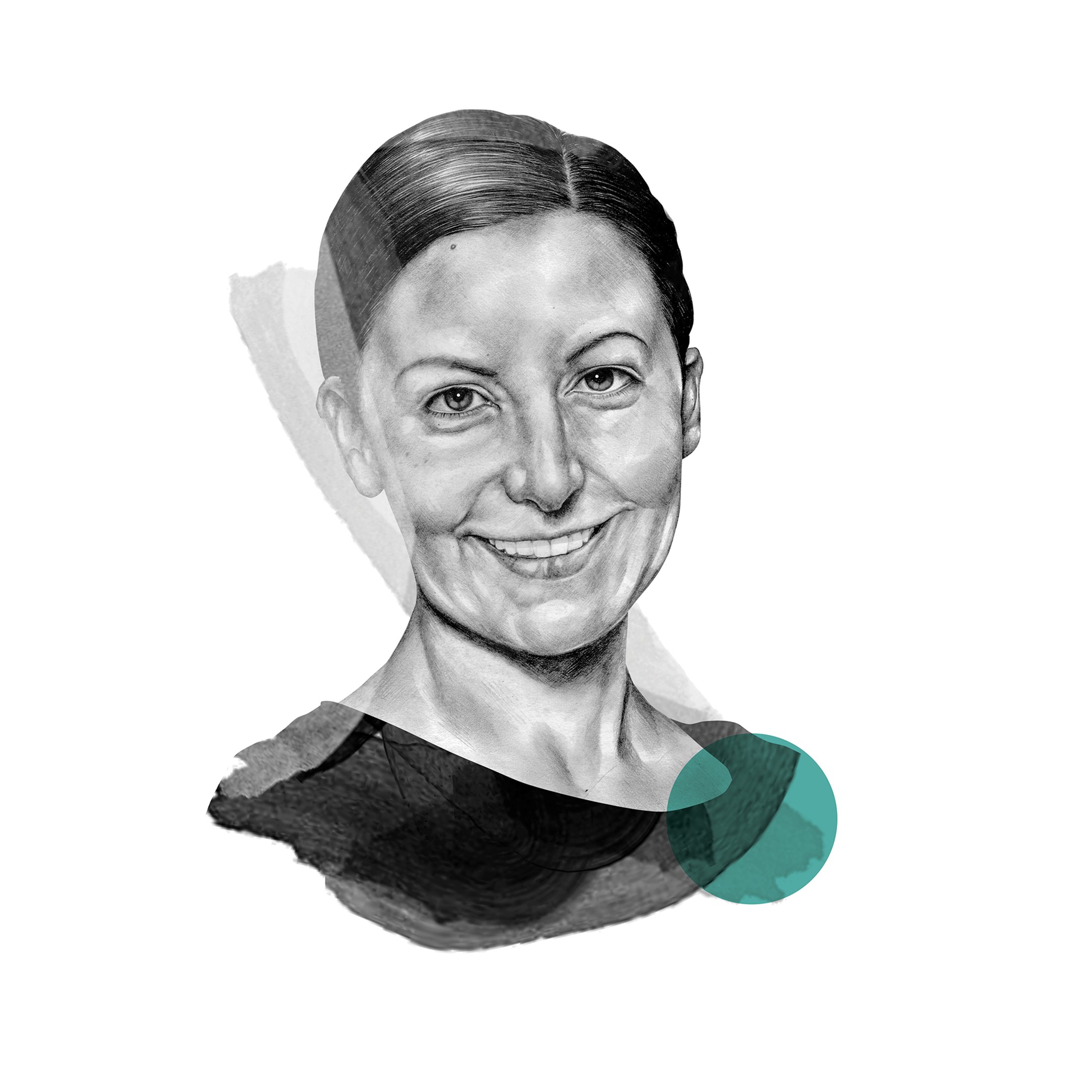
INVESTING FOR GROWTH
Myrna Atalla is executive director of venture philanthropy organisation Alfanar, which works through innovative social enterprises to transform low-income communities.
Ducks are not the most obvious solution to the problem of unemployed widows in Egypt. But for the Arab world’s first venture philanthropy organisation, they could form at least part of the answer. A mass-rearing model, currently being tested by a widows’ empowerment organisation in the north of the country, is just one of the investments London-based Alfanar has backed in an effort to help lift those at the bottom of the economic pyramid out of poverty.
“Their business plan shows that Egyptians consume 35 million ducks a year, but they only produce 11 million. The rest are imported,” explains executive director Myrna Atalla. “So we’ve helped seed the first duck-rearing value chain in the country, run by widows, to capitalise on that gap.”
The chain represents a line of small businesses. The goal is for each of these to generate enough profit to sustain these women and their families, she adds.
"We've injected aid funding into this organisation’s microloan portfolio, which allows them to provide these women with the training they need to recycle their loan, cover their costs and hopefully to grow their income.”
This is Alfanar’s model in a nutshell: it champions grassroots social enterprises that are scalable, financially viable, and able to deliver lasting social change in the Arab region. Its portfolio spans 18 initiatives across Egypt and Lebanon, with a focus on investments that help women and children, and a goal of helping to grow organisations into “impact investment-ready entities.”
“If the organisation is looking for funding, and nothing else, we’re not the right partners for them,” Atalla says.
Alfanar launched in 2004, but it remains one only a handful of venture philanthropy players in the region, using its $1.68m annual budget to find and scale social ventures. This form of giving is focused on outcomes, so grants go hand-in-hand with regular calls, visits and running support from an assigned officer within Alfanar.
The organisation uses digital apps to encourage grantees to track and react to their data in real-time, “rather than see it as something for a quarterly report for donors,” she explains. “The data is to help them see how to improve and grow.”
Alfanar reports that projects on average impact 39 per cent more lives during the course of its investment, and self-generate 36 per cent more income year-on-year.
The organisation takes a long view on its investments, opting for a pilot year of funding which doubles up as a period of due diligence.
If the partnership proves to be a good fit, Alfanar offers funding for a further three years. This means organisations can step off the hamster wheel of yearly grant approvals, and focus instead on their impact.
“I think it’s really disingenuous to say to an organisation ‘think long-term and take bold risks’, if we’re planning to step away the next year,” notes Atalla.
For Atalla, venture philanthropy picks up where traditional aid stops, by putting the market to work for low-income communities. In areas of the Middle East ranging from impoverished regions of Egypt to refugee camps in Lebanon, it allows poor populations to be positioned as end-users rather than beneficiaries, supporting a more sustainable model of development.
“It’s a shifting of mindsets. In many marginalised places, markets are thriving: disadvantaged people are customers of services and ought to be treated and valued as such,” she says.
It’s also an approach that helps to combat the issue of donor fatigue because philanthropists can track the impact of their money.
“They can see their dollars are having a ripple effect on the landscape, and are contributing to something bigger,” she notes. “Philanthropy is a huge part of our region and culture, but the goal is to deploy it so that the effects go beyond that of any one grant or investment.”
A case in point is Soufra, a Beirut-based catering business. The company was the brainchild of Miriam Shaar, a Palestinian refugee who runs the Women’s Program Association in Lebanon’s Burj el Barajneh camp. The NGO provides education, skills training and microloans to women living in the camps, and Shaar saw an opportunity to launch a catering unit to both subsidise its activities, and give the women a way to generate an income.
With Alfanar’s backing, Soufra – which means ‘dining table’ in Arabic – was launched.
Four years and one successful crowdfunding campaign later, Soufra is a thriving catering business, whose food truck gives refugee women a means to build their confidence, skills and earnings.
Alfanar is now supporting Shaar and WPA in running a childcare centre in Burj el Barajneh camp, to allow more women to pursue employment.
“Of the 18 investments we’re currently backing, 11 are run by women,” explains Atalla. “One of things we look for in our partnerships is a backable chief executive and women are just relentless in ensuring their initiatives succeed, no matter what obstacle comes their way. Microloans to women are almost 100 per cent repaid.”
These investments have an added value. Through the funding, management training and benefits it offers to grantees, Atalla believes Alfanar is helping women to transcend cultural and economic barriers and champion a new style of business.
“We are empowering a new generation of business leaders, and ones who actually got started because they care about changing society for the better,” she says. “Now they’re going to pave the path to show other people that business can be done well, and sustainably.”

RESEARCH INTO ACTION
Natasha Ridge is executive director of the Sheikh Saud bin Saqr Al Qasimi Foundation for Policy Research, tasked with supporting progress in Ras Al Khaimah and the wider UAE.
When it comes to academic success in the UAE, wealth matters. That was the primary finding of a paper published in September, which showed that low-income Emiratis trail significantly behind their richer peers when it comes to maths, science and reading.
Worst affected are “doubly disadvantaged” low-income males, noted the paper, which argued for targeted investments to prevent poor and male students from falling through the cracks in the school system.
The paper was published by the Sheikh Saud bin Saqr Al Qasimi Foundation for Policy Research, a Ras Al Khaimah-based think tank that champions evidence-led progress in the emirate and wider UAE. Its method is two-fold: first it works to generate cutting-edge research on public policy questions important to Ras Al Khaimah’s development, often in alliance with outside scholars, universities and partners. The findings are then spun out to help spark and shape policy and planning decisions, putting research in motion for the wider good.
“Our goal is to help the UAE to become as competitive as it can be,” explains executive director Natasha Ridge, “so the key challenge is in getting this research into the right hands, so it can be acted upon.”
National plans call for the UAE to morph itself into a hub for global business and innovation by 2021, one powered by a roaring, diversified economy, and fronted by bright Emirati leaders.
For this to fly, says Ridge, the country needs a recalibrated school system capable of turning out the sort of talent this new economy needs – a realisation that helped drive the launch of the foundation in 2009 by Ras Al Khaimah’s ruler Sheikh Saud bin Saqr Al Qasimi, supported by Ridge.
“Our big commitment is to improving the quality of education, and mainly in the public sector,” she says.
In global rankings, the UAE falls below the OECD average for science, reading and maths. “His Highness wants to improve the capacity of Emiratis so they can take up the leadership positions of the future with a good education, and having fully developed their capabilities.”
Shaking up education requires a multipronged approach. Among the foundation’s offerings are teacher-training courses and exchange programmes, school improvement grants, hands-on learning for at-risk or disadvantaged youth, and scholarships for gifted students. Some 1,500 teachers – almost half of all public school teachers in Ras Al Khaimah – have completed at least one of its free, 10-week professional development courses.
“We don’t tell teachers what they need: we survey them at the start of each year to understand what courses they’d like and we respond to those needs,” explains Ridge. “We also work with the Ministry of Education to support their agenda.”
Courses are held outside working hours, and teachers are tracked to see how effectively their new skills transfer to the classroom. Peer support is available via a 1,520-strong teacher network, which was seeded by the foundation. “We’ve seen a real change in valuing teachers as professionals in the community here,” she adds.
The nonprofit also works to reach vulnerable groups, including boys teetering on the edge of academic expulsion and those in prison: 124 inmates took part in its development courses last year.
In a local secondary, a pilot scheme to re-engage boys in learning has seen attendance rates leap to almost 100 per cent, from half that, among 40 per cent of those participating.
"A number of these boys were on the brink of being permanently excluded but are now serving as prefects,” says Ridge. “They’re seeing a purpose again in schooling and education.”
Over the years, the foundation’s focus on education has spilled over into broader work on social outcomes, taking in public health, community engagement, and the arts and culture space. It uses research to scout out gaps in the social ecosystem, tackling potentially thorny issues.
Matters ranging from the impact of absent Arab fathers on a child’s academic success, to cause areas overlooked by the UAE’s state-funded foundations have been scrutinised. (The latter paper found a glut of opportunities for gifted Emirati youth, alongside a scarcity of programmes targeting the environment and at-risk youth – and none at all to meet the growing needs of the UAE's elderly.)
The foundation also offers grants to PhD students and faculty on the condition that a portion of their research is carried out in Ras Al Khaimah or the wider UAE. This cycle of reinvestment has helped foster a rich bank of knowledge on topics as diverse as social impact bonds and biofuels, in an emirate that might otherwise have struggled to catch the eye of foreign scholars.
It’s a snapshot of how Al Qasimi Foundation is working to amplify its impact and drive the development of its home city, says Ridge.
“When I did my doctorate in 2007, you could barely find any articles that talked about education in the UAE,” she explains. “We’ve worked hard to build up the capacity of local researchers and to create a much larger body of research.”
"THE CAUTION NOW IS NOT TO BECOME OVERLY FOCUSED ON WOMEN, BUT TO ALSO QUESTION HOW WE BRING MEN INTO THE PICTURE AS WELL."
This evidence-led model also means the foundation sometimes stands apart from mainstream thinking on trends in social development. Ridge is sceptical, for example, of the role that private funding can play in delivering initiatives for public good.
“We’re very familiar with venture philanthropy and social impact investing, but I think it has to be approached with a great deal of caution and really enshrined as a mission that the horse is still leading the cart,” she says.
And while the west hews to the idea that women and girls in the Arab world lack opportunity, Ridge is mulling another form of gender bias. In much of the Middle East, girls outperform boys at every level of education – from primary school to postgraduate studies – yet she notes many nonprofits still struggle to find funding for initiatives targeting disenfranchised young Arab men.
“It’s wonderful that we see women leading nonprofits in the region, and that this is leading to real action. It has really helped to move programmes on women’s development and empowerment up the funding agenda,” she says.
“But I think the caution now is not to become overly focused on women, but to also question how we bring men into the picture as well. That's a challenge in this region, where we often see a negative portrayal of men – particularly from the outside.”
Inclusion is a factor in many of the foundation’s programmes. It runs an annual Fine Arts Festival, which acts as a public showcase for up-and-coming artists, and operates a free gallery in its offices.
Monthly events spanning from flying lessons to kayaking in Ras Al Khaimah’s mangroves are offered free of charge to residents, helping to forge cross-community ties in a country where expatriates outnumber Emiratis at a rate of 5 to 1.
“His Highness is very keen to make Ras Al Khaimah an integrated community, where people view the emirate as home regardless of their ethnicity,” explains Ridge. “These events are a way of bringing people together.”
Ridge is equally keen to see better cross-pollination of ideas between the corporate and nonprofit sectors, to sharpen the impact of the third space and to help draw new talent into the sector.
“It’s really about meshing the two together to bring out the best of both worlds,” she says. “I’d like to see more women in the corporate space and more men in the [nonprofit] sector, because it creates a balance. We need an inclusive mindset across both.”
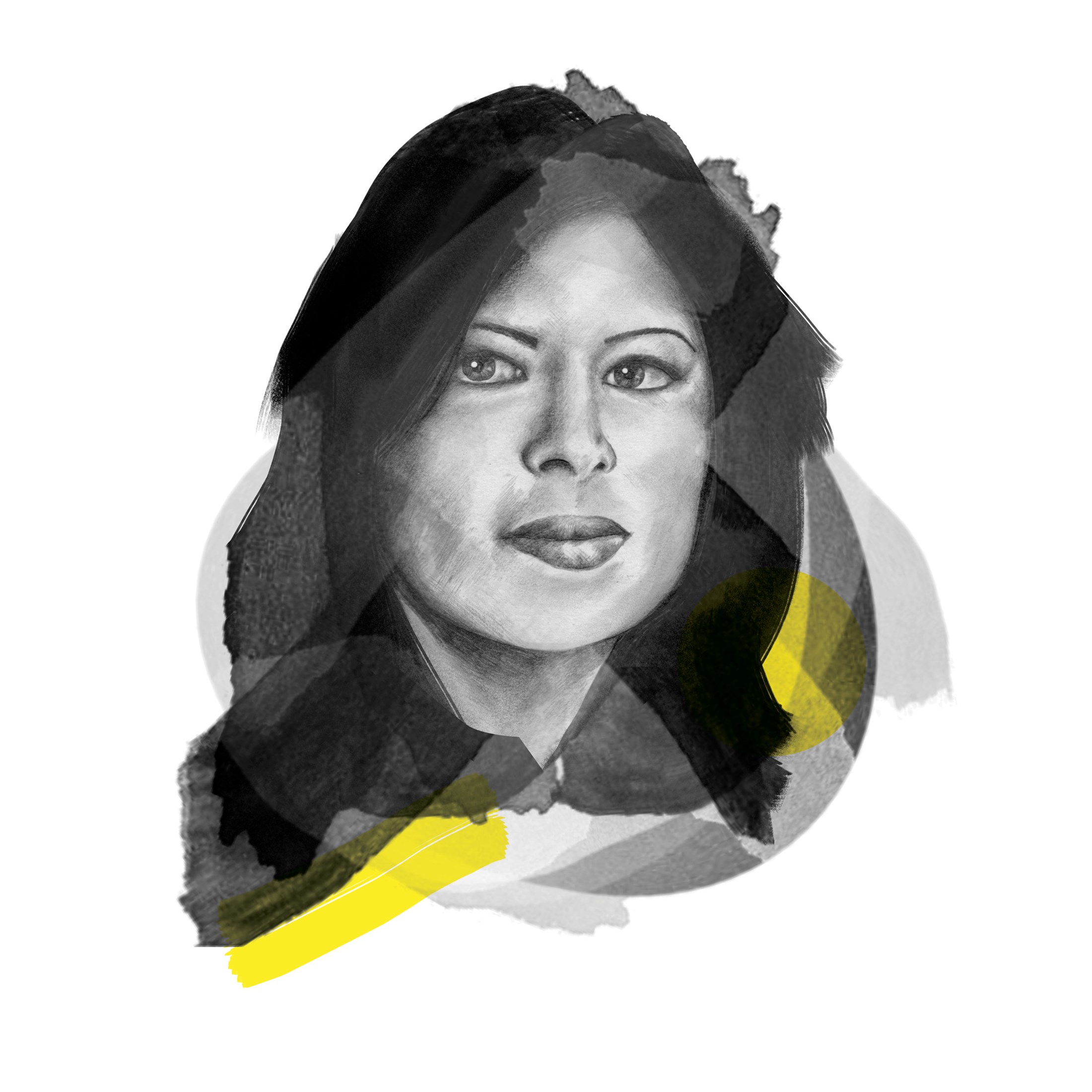
NEW BUSINESS HEROES
Iman Bibars is regional director and founder of Ashoka Arab World, the local arm of a global network of social entrepreneurs invested in solving the region's biggest challenges.
Iman Bibars is in the business of change. As the founder and regional director of Ashoka Arab World (AAW), the local arm of a 3,500-plus global network of social entrepreneurs, her goal is to find and cultivate people with the ideas and impetus to tackle the Arab region’s biggest challenges.
Its 110 ‘fellows’ from the Middle East and North Africa stretch from an Egyptian engineer working to widen access to low-cost housing, to a Palestinian innovator using greenhouses to help refugees slash their dependency on food aid.
“We are creating a community of change leaders,” she says. “They are the world’s leading social entrepreneurs and when you sit with them, you feel there is cause for hope.”
Ashoka fellows face a multistage vetting process, before gaining access to funding, mentorship and a network than spans 91 countries. Once in the fold, 75 per cent will go on to become either profitable or financially sustainable. “These are people delivering systemic change and creating new industries,” Bibars explains. “They are swimming against the tide.”
Beacon projects include Glowork, an employment company in Saudi Arabia that has launched more than 30,000 women into the workplace, and which in its first year was acquired by SAS Holdings for $16m. Care With Love, a home healthcare company in Egypt, has helped more than 10,000 people secure work as carers for the country’s ageing population.
“Some of our fellows work on a purely business model. Others are not-for-profit but equally strategic,” says Bibars. “There’s an explosion of new ideas coming up.”
"PHILANTHROPISTS WANT TO CHANGE THE WORLD BUT THEY DON'T BELIEVE THAT NONPROFITS CAN HELP."
Donors in the MENA region, however, have proved slow to invest in them. The vast majority of AAW’s financing comes from funders in the US and Europe, despite persistent efforts to fundraise locally, reflecting what Bibars sees as a key misunderstanding of the social sector’s role in powering society.
She argues that the purpose of the third space is to step in where businesses can’t, bringing fresh thinking to the sort of urgent problems that drive inequality, instability and radicalism.
For corporations and business leaders then, helping to fund this work should be less a matter of charity, and more about protecting their markets.
“It’s quite simple. If you do not invest in solving structural problems, you won’t have a stable market in which to sell your products,” she says. “The Arab region is in the situation it is now because we haven’t invested in cutting-edge ideas within education, awareness and tolerance.”
Donors are particularly reluctant to acknowledge nonprofits as active partners in delivering social and economic change, she argues.
“Philanthropists will spend millions of dollars to build hospitals, or mosques, but then dismiss nonprofits as ineffective charities. They want to change the world, but don’t believe nonprofits can help. Many believe that business can solve everything, but it can’t – some problems require a different approach,” she says.
Social investment is also misunderstood. Because nonprofits increasingly cloak themselves in the language of business – talking of scale, innovation and risk – donors often expect to see their funding translate into bang-for-your-buck statistics.
Not all social returns are as easily quantifiable as, say, the number of vaccines delivered in a community or meals donated to families, but they still pay dividends over the longer term.
“Organisations that work with battered wives, or juvenile delinquents, or promote tolerance in rural areas, they are never going to deliver a dollar return,” she says. “But investments in these should be seen as a social tax. It isn’t charity. It’s a vital contribution to creating a harmonious society.”
With three decades of development work under her belt, Bibars has played a role in the quiet evolution of the Middle East’s nonprofit space. In the early years after Ashoka’s launch in 2003, she would introduce the organisation as “venture capitalists of the social sector”, baffling investors who had barely heard of the term social entrepreneur. Today, she says the sector has made great strides, in large part due to a wave of women leaders who have helped to professionalise nonprofit work.
“These are incredible women; educated, well-versed, and they've led a transformation of the sector. This is no longer the charity of your mother’s generation; we’re not kissing babies. It’s strong women and strong NGOs delivering impact," she notes.
The number of women in top nonprofit roles, however, also speaks to the barriers they face in business and politics. Women hold less than 2 per cent of GCC board seats, according to data from the International Labour Organisation, while their representation at executive level ranges from 17 per cent in the UAE, to just 7 per cent in Qatar.
“We don’t have an old girls’ club, or access to the right networks, and we don’t control the money,” says Bibars. As a result, she explains, the more open nonprofit sector offers ambitious women a greater shot at leadership than the corporate world.
The same power dynamic contributes to the dismissal of the sector as charity, or a glorified form of caregiving, says Bibars. While the male-dominated private sector holds the resources and power, funding only the work it sees fit, the nonprofit sector struggles to gain the traction it needs to take risks, innovate and deliver fresh solutions to old problems.
“It comes back to this: who holds the money and the power?” she says. “Too many donors see me, or see a women-led nonprofit, and immediately say: ‘Oh, charity? Talk to my wife.’ The business ecosystem needs to rise up and meet us, and recognise the impact we are having.”
Fixing this means changing the narrative, and educating the region on the difference between charity and social investment. It also means taking aim at the next generation and centering the idea of social responsibility in schools.
In Egypt, AAW works with 20 schools in its Start Empathy scheme, which aims to give rise to a more empathetic generation of future leaders. Bibars would like to see this work extend into universities.
“We all have a responsibility to contribute towards changing society,” she says. “It is in everyone’s interests to start.’
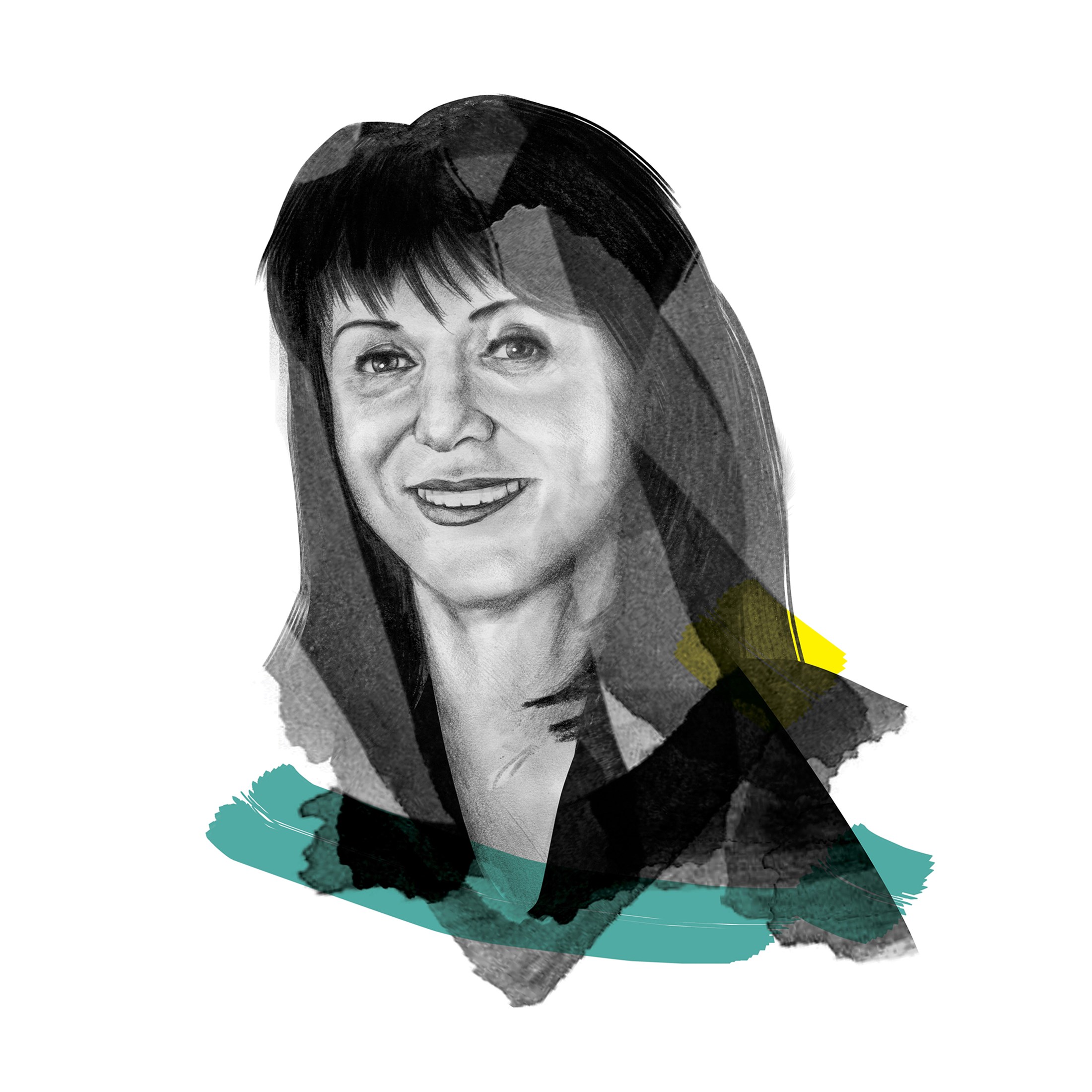
INNOVATING FOR IMPACT
Haifa Al Attia is the former CEO of the Queen Rania Foundation for Education and Development, which aims to reshape learning in Jordan and the region.
Education in Jordan is a limited commodity. Years of mayhem at the country’s borders with Syria and Iraq have placed Jordan’s economy under siege, while the act of hosting a 1.3 million-strong influx of refugees has swelled its population and further squeezed resources.
All this has eroded Jordan’s ability to provide access to education for groups including pre-school children, refugees, and young adults seeking vocational skills. In a country where unemployment stands at around 18 per cent, and economic growth last year languished at 2 per cent, this bears long-term risks.
“When I look at Jordan, I see a demographic opportunity and an economic opportunity,” says Haifa Al Attia, the former CEO of the Queen Rania Foundation for Education and Development (QRF). “Displacement has seen our population grow in spurts, meaning it’s difficult to keep up with the pace of services needed. But if this segment of society is left helpless, without access to education, what is an opportunity for growth will instead turn into a problem.”
In response to Jordan’s low access to quality early-childhood education – less than 25 per cent of young children attend preschool - QRF launched a free digital app to target numeracy and social skills in preschoolers. The platform, which went live last December, has notched up more than 300,000 downloads, with 3.2 million sessions logged, and aims to help plug the gap in the provision of bricks and mortar learning centres.
“I think it showed people were hungry for that sort of service,” says Al Attia, who stepped down from the foundation in August after five years at the helm.“It allows kids to learn as they play, it’s free and it engages parents in their learning. If we can’t enroll all children in public schools, we can lend support while [the government] works towards universal access.”
"WITH EACH INTERVENTION WE LOOK FOR THREE PILLARS: IS IT IMPACTFUL, IS IT SCALABLE, IS IT SUSTAINABLE."
Much of QRF’s work sits at this intersection between technology and education. Founded in 2013 by Jordan’s Queen Rania Al Abdullah, it seeks to push the boundaries of learning by finding, igniting and scaling innovative, cost-effective fixes to Jordan’s education crunch.
Along with incubating new ideas to education change, the foundation invests in research to shape its work. Initiatives that gain traction in Jordan can be applied across the Middle East and beyond.
“Jordan is our lab, but the work can be relevant to Arab populations in Greece, in Germany, in Saudi and more,” says Al Attia.
This strategy was also the catalyst behind QRF’s Edraak, the region’s first nonprofit, Arab-language massive open online course (MOOC), built upon opensource technology developed by Harvard and MIT.
Its courses touch on topics ranging from employment skills, to robotics, to remedial support, and are designed to give Arab learners a free platform for continuing education.
In the three years after Edraak’s launch, more than a million of them signed up, joining a digital learning curve that had, until then, largely bypassed Arabic speakers due to a scarcity of content.
“We wanted courses that would enrich people’s lives: whether to get them into jobs, broaden their skills, or – for the many Arabs who are displaced with no access to school or university – help them start learning again,” explains Al Attia. “If you’re a woman in Saudi, say, or a young adult in Yemen who wants to keep learning, we’re making that access possible.”
The platform has also spun off to target children. Backed by a $3m grant from Google.org, Edraak Vertical offers interactive learning for students in grades six to 12, creating a virtual classroom with Arabic-language content, tools and games. The site aims to be a source not just for children, but also for resource-poor schools and teachers across the region.
“These are nice tech-led solutions that can help reform the system – and they scale,” notes Al Attia. “When you look at Jordan, where schools are overflowing and some have gone to double or triple shifts to try and accommodate [refugee] students, this is a way to help serve them.”
QRF has an edge in its founder. As a high-profile advocate for education, Queen Rania has long used her position and profile to lobby for reform. The foundation’s funding portfolio includes corporate partners in Jordan and beyond – in May, Alibaba founder Jack Ma gave $3m to further its work – while sales of its online learning models help to support its activities.
Partnerships with organisations such as the UK’s Department for International Development (DfID) and Jordan’s Ministry of Education are also key. But QRF’s team has also pushed to ensure the foundation’s work speaks for itself, using tools ranging from randomised control groups to outcome measurement to track impact.
“With each intervention, we look for three pillars: is it impactful, is it scalable, is it sustainable,” says Al Attia.
The foundation is also prepared to take longer-term bets. In September, it unveiled a competition for education startups in the region, offering three grants worth a total of $200,000 in an effort to power up entrepreneurship and innovation in the sector.
A similar growth mindset applies to the foundation’s team, more than half of which are women. QRF has a strong culture of mentorship, with many senior staff – including its new CEO – having risen through its ranks.
“My vision was always to leave QRF in the hands of these young people, who share the foundation’s mission and can deliver on it,” Al Attia says. “I’ve mentored them, I’ve invested in them, and they really are fantastic. — PA

